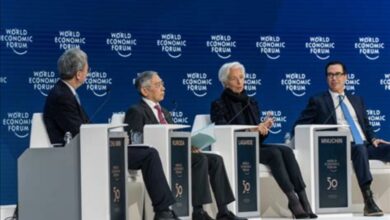When the Muslim Brotherhood heads a political coalition that includes respectable allies — like the Wafd, Nasserist, Karama, Ghad parties — we can safely assume it’s a union of patriots, even if we disagree with any of these parties’ views. But when the coalition also includes the minor opposition parties that Safwat al-Sherif, the ex-senior aide to Hosni Mubarak, often rallied to support the deposed president, then there’s a problem.
The Brotherhood-affiliated Freedom and Justice Party is now spearheading an electoral coalition, the Democratic Alliance, that includes many of these small parties. In an unseemly move, Brotherhood leaders recently sat in a coalition meeting only to hear those party leaders praise them, like they praised the ex-ruling National Democratic Party (NDP). Interestingly, some of these party leaders are being investigated for criminal offenses. Others are known to have won their seats in previous parliaments through fraudulent elections — which, incidentally, caused the Brotherhood to lose.
When it comes to coalition politics, the Muslim Brotherhood has no need for these small parties. Nor do the Wafd and Karama parties need to denigrate themselves by joining an alliance reminiscent of those formed by the NDP, which were never truly democratic or serious about political reform.
The Muslim Brotherhood is resorting to NDP-style tactics in order to boost the number of parties in their coalition. Relying on quantity, rather than quality, to fortify their alliance will ultimately harm the Brotherhood. They would do much better to sit with credible political figures that opposed Mubarak or with new parties that formed after the revolution, like the Free Egyptians Party.
Egypt needs to be cleansed of the remnants of Mubarak’s regime, including minor opposition parties that helped give legitimacy to the old system. They may have licenses, but they lack any popular support. Surely, the Muslim Brotherhood can do much better.
Translated and abridged from the Arabic Edition




